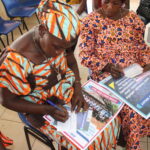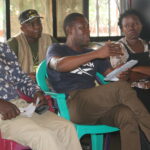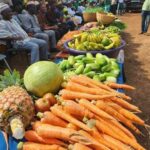Agriculture and Food Security
The food crisis in Sierra Leone is of a high magnitude. On the contrary, the country has huge agricultural potential such that if that potential is fully tapped, Sierra Leone can be a food-self-sufficient country. But this situation is far from getting better. The Global Hunger Index report for 2021 ranked Sierra Leone 101st out of the 116 Countries assessed, scoring 31.3. The report further indicated that one out of every six children is wasted and another one out of six is stunted. One out of every six children die before their 5th birthday and a third are undernourished.
However, agriculture plays a significant economic role in Sierra Leone – from creating jobs for the rural farmers to ensuring the supply of food for many rural family households. This makes food supply and food systems have a strong connection with agriculture in Sierra Leone. It is the desire that people – family and mall-holder farmers – should be able to grow what they need to eat round the year. Unfortunately, this is far from the true situation. The challenges that growers face are numerous and key is related to land rights and land use management. The denial of small-holder farmers and the majority of youth and women to own, use and control land due to the lack of incentives for scaled-up agricultural; activities, are the impeding factors to agriculture and food supply in Sierra Leone. The repealing effects are acute food shortage and abject poverty in particularly rural communities.
What are we doing?
Our key entry point into the land governance sphere is to support policy reforms that promote full domestication and compliance with the UN-CFS ten principles of responsible investment in agriculture to achieve food security, especially for vulnerable people. We consider land as the precious resource available for the larger population of rural people, individual farmers and smaller agribusiness investors to cultivate. However, the sustainability and success of their effort is dependent on the access and right they have to use the land. Therefore, work in partnership with the government to make laws and policies in line with the recommendations of the VGGT, to support national food security through responsible investment in agriculture.




